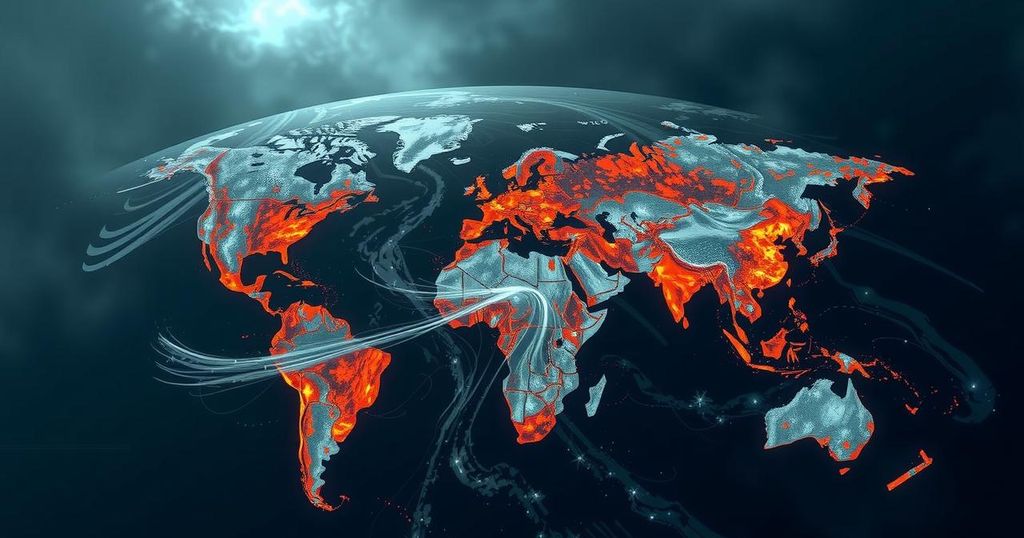A new study by World Weather Attribution indicates that climate change has intensified the ten deadliest weather events of the last 20 years, leading to approximately 570,000 deaths worldwide, with notable incidents including droughts, hurricanes, and heatwaves. The findings emphasize the need for urgent actions to combat climate change, especially as global warming trends escalate.
A comprehensive analysis conducted by World Weather Attribution reveals that the ten most severe weather events from the past two decades have been significantly exacerbated by human-induced climate change, contributing to a staggering death toll of approximately 570,000 across the globe. The report highlights a diverse range of catastrophic occurrences, comprising three hurricanes, four heatwaves, two droughts, and one flood, all of which culminated in immense loss of life. Among these tragic events, the most catastrophic was a drought in Somalia in 2011, responsible for over 250,000 fatalities. Additionally, Tropical Cyclone Nargis claimed nearly 140,000 lives in Myanmar in 2008, while a heatwave in Russia in 2010 resulted in more than 55,000 deaths. Collectively, these three disasters constituted a significant proportion of the analyzed mortality figures. The research employed sophisticated computer modeling to assess how climate change influenced these specific weather events, allowing scientists to determine whether such disasters became more likely or more severe due to anthropogenic climate impacts. Friederike Otto, co-founder and lead of the study at the Center for Environmental Policy, Imperial College London, stated, “Climate change isn’t a distant threat. It worsened extreme weather events that left more than 570,000 people dead. This study should be an eye-opener for political leaders hanging on to fossil fuels that heat the planet and destroy lives. If we keep burning oil, gas, and coal, the suffering will continue.” To refine their analysis, Dr. Otto and their colleagues utilized the same atmospheric models and predictive tools utilized for forecasting future weather patterns. By running simulations that illustrated conditions pre-industrialization as a control measure, they established a clear comparison between the occurrences of modern-day natural disasters amid an average global temperature rise of 1.2C and a hypothetical world without industrial development. This grim report follows closely on the heels of a United Nations announcement, indicating that the planet is poised for a potential 3C rise in temperatures by the close of the 21st century. Roop Singh from the Red Cross Red Crescent Climate Centre, which collaborates with World Weather Attribution, emphasized, “The massive death tolls we keep seeing in extreme weather shows we are not well prepared for 1.3°C of warming, let alone 1.5°C or 2°C.”
Climate change has been a growing concern over the past few decades, with increasing evidence linking human activities, particularly the burning of fossil fuels, to severe weather patterns. The International Disaster Database has documented the impact of various natural disasters over time, making it a vital resource for understanding the relationship between climate change and extreme weather. The latest report from World Weather Attribution is significant in quantifying the human impact of climate-induced disasters, providing a clearer view of the devastating consequences of inaction against climate change.
In summary, the recent findings by World Weather Attribution underscore the urgent need for action against climate change, highlighting that over half a million lives have been lost due to disasters worsened by rising global temperatures. The research illustrates the pressing connection between human activities and extreme weather events, particularly emphasizing the importance of transitioning away from fossil fuels to mitigate future suffering. As global temperatures are projected to rise further, preparedness for increasingly severe weather must be prioritized to safeguard lives.
Original Source: www.theinertia.com







